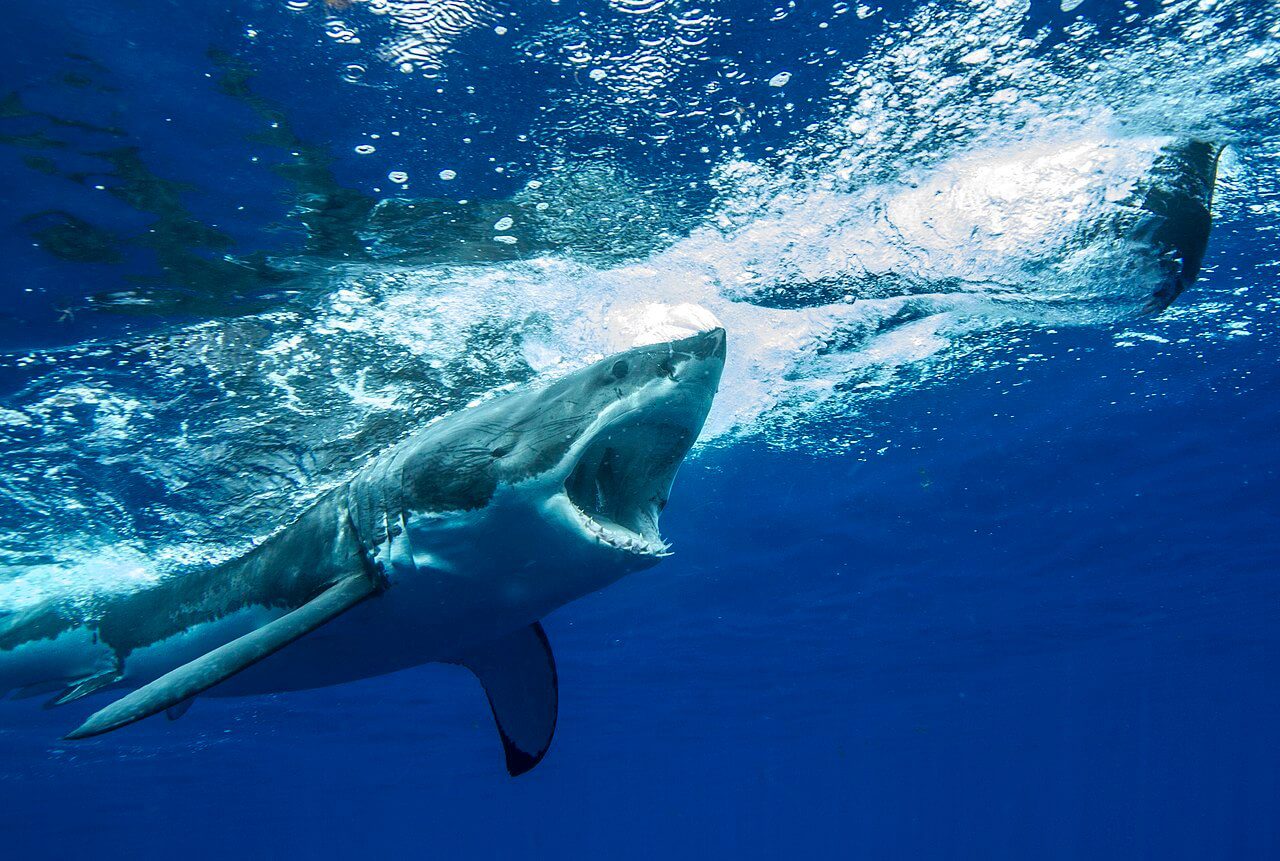Humpback whales and great white sharks are two fascinating creatures found in oceans all over the world. Humpback whales are known for their large size and peaceful behavior, while great white sharks are fearsome predators that play a critical role in regulating the marine ecosystem. When comparing the two, humpback whales are larger but slower, while great white sharks are faster and more agile. Humpback whales are filter feeders and a primary food source for many marine predators, while great white sharks feed on a wide range of prey. Both animals are important for the ecosystem and should be protected.
Humpback Whale vs. Great White Shark: Who Rules the Waters?
Humpback Whale
Humpback whales are known for their massive size, reaching lengths of up to 50 feet and weighing up to 79,000 pounds. These gentle giants are found in all major oceans around the world, making them one of the most widely distributed whale species. They are known for their signature songs that can travel for miles underwater.
Great White Shark
Great white sharks are one of the most feared predators in the ocean. They can grow up to 20 feet in length and weigh up to 5,000 pounds. Great white sharks are found in all major oceans around the world, but they are most commonly found near coastlines. They have a reputation for being aggressive and attacking humans, which has made them a favorite subject of many movies and documentaries.
Comparing the Two
When it comes to comparing humpback whales and great white sharks, there are several factors to consider. The first is size. Humpback whales are much larger than great white sharks, which gives them an advantage in any encounter. However, great white sharks are much faster and more agile than humpback whales, which means they can maneuver more effectively and catch prey more easily.
Another factor to consider is behavior. Humpback whales are peaceful creatures that tend to swim at a slow pace, while great white sharks are known for their aggression and their willingness to attack anything that enters their territory. This means that humpback whales are less likely to attack than great white sharks, but they are also less capable of defending themselves if they are attacked.
Contrasting the Two
One major difference between humpback whales and great white sharks is the role they play in their respective ecosystems. Humpback whales are filter feeders that eat mostly krill and small fish, which makes them one of the primary food sources for many marine predators. Great white sharks, on the other hand, are apex predators that feed on a wide range of prey, including seals, sea lions, and other sharks. This means that great white sharks play a critical role in regulating the marine ecosystem, while humpback whales are primarily a food source for other animals.
Another key difference between the two is their social behavior. Humpback whales are highly social and often travel in groups or pods, while great white sharks are solitary creatures that only come together for mating or feeding. This means that humpback whales have a larger support system and are more likely to work together to protect themselves, while great white sharks are on their own when it comes to defense.
Conclusion
So, who rules the waters? It’s difficult to say, as both humpback whales and great white sharks have their own unique strengths and weaknesses. Humpback whales may have the advantage when it comes to size, but great white sharks make up for it with their speed and agility. Ultimately, it’s important to remember that both animals play critical roles in the marine ecosystem, and we should do everything we can to protect them and their habitats.
